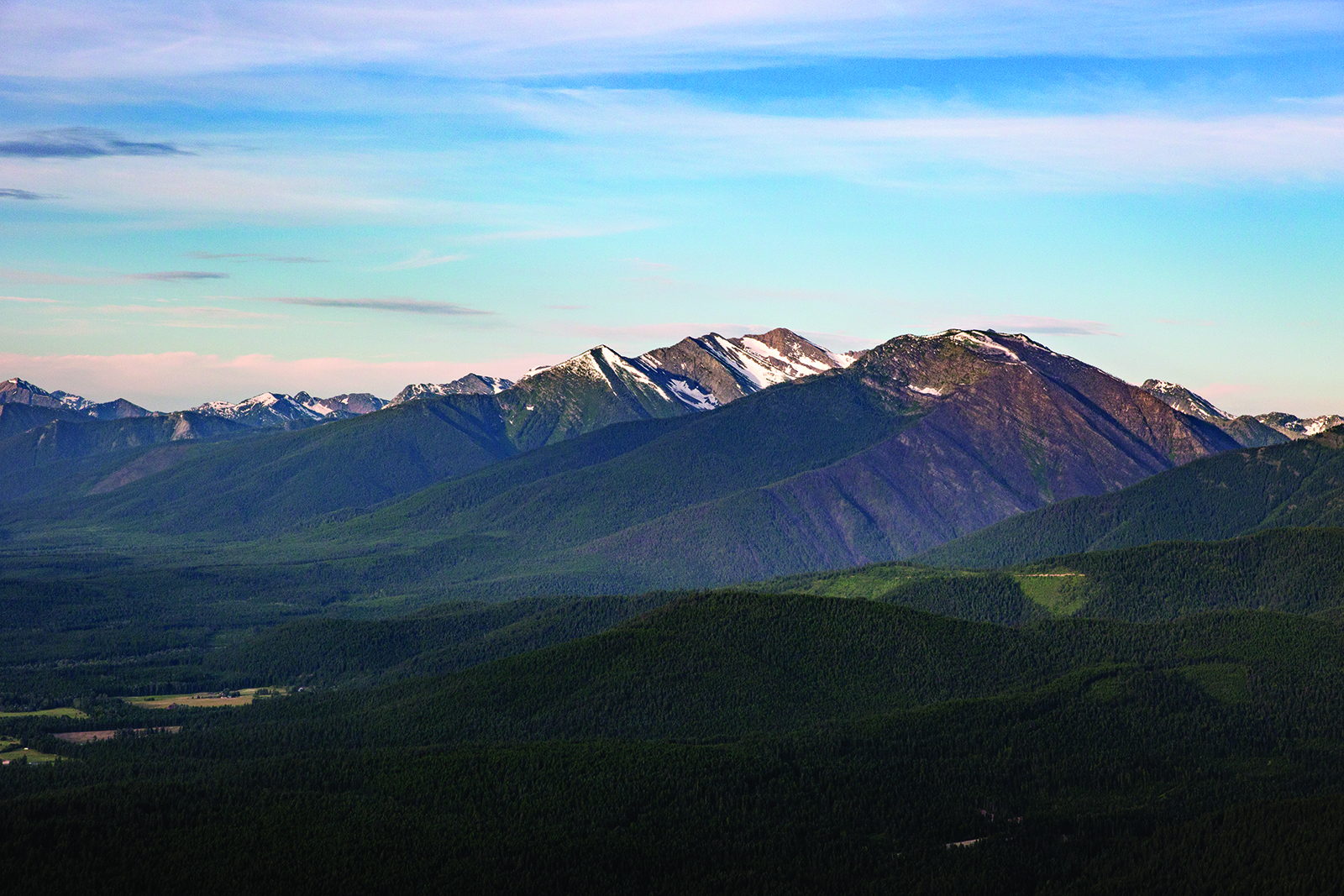Conservation Group Sues to Halt Yaak Logging Project in Grizzly Bear Habitat
The proposed timber sale is set to occur on a segment of the Kootenai National Forest that is home to the imperiled Cabinet-Yaak grizzly population
By Tristan Scott
Pointing to evidence that an isolated population of grizzly bears in northwest Montana has failed to meet its recovery goals, a conservation group is suing the Kootenai National Forest over its 95,000-acre Black Ram logging project in the Yaak Valley north of Troy.
The sprawling logging project has been beset by controversy since it was first proposed in July 2018, with high-profile conservation figures, including the author Rick Bass, arguing it shouldn’t move forward because it lacks effective safeguards to protect the region’s fragile grizzly population in the Cabinet-Yaak ecosystem, which includes a federally designated grizzly bear recovery zone.
“The Kootenai National Forest’s assessment acknowledged that this project is ‘likely to adversely affect’ grizzly bears. Yet the U.S. Forest Service also claimed that 2,000 acres of regeneration harvests, many in critical core habitat, won’t affect bears significantly, and that Yaak grizzlies have no need for deeper analysis,” according to Bass, the author, Yaak resident and board chair of the Yaak Valley Forest Council. “We disagree.”
On Jan. 6, the Alliance for the Wild Rockies and the Native Ecosystems Council formally challenged the project, filing their lawsuit against the U.S. Forest Service (USFS) in federal court in Missoula. The lawsuit also names as defendants Keith Lannom, deputy regional forester for the USFS’ northern region; Chad Benson, the forest supervisor for the Kootenai National Forest; and Kirsten Kaiser, district ranger on the Three Rivers Ranger District of the Kootenai National Forest.
The USFS has not yet responded to the complaint and does not comment on pending litigation. In February 2020, the agency withdrew its draft decision notice and canceled an administrative objection period to its environmental assessment that found the timber harvest posed no significant impact to the timber-rich ecosystem or the threatened population of grizzlies it supports.
Conservation organizations interpreted the move to suspend the objection process as a victory, but the USFS reissued a draft decision notice for the project in September 2020 after conducting a biological assessment. On June 21, 2022, the agency issued the final decision notice approving the project to “begin immediately.”
As of the filing of the complaint, however, the logging project still has not begun.
Mike Garrity, executive director of the Alliance for the Wild Rockies, said the thrust of his organization’s legal argument centers on the project’s reliance on new road construction in grizzly bear habitat, as well as the agency’s ineffective methods of closing and decommissioning roads upon the project’s completion.
“There’s no other way to put it, the Cabinet-Yaak grizzly population is going downhill fast, which is the opposite of the agency’s legal mandate to recover, not extinguish, endangered species,” Garrity said in a prepared statement announcing the lawsuit. “In 2018 the U.S. Fish and Wildlife Service counted 54 grizzlies in its monitoring report. In 2019 only 50, down to 45 in 2020 and the 2021 estimate is only 42 bears. That’s a stunning crash of nearly one-quarter of the population in only four years.”
The project area encompasses 95,412 acres and includes commercial harvest on 4,038 acres, as well as non-harvest fuel treatment on 7,553 acres. It calls for building 3.3 miles of permanent roads and 0.2 miles of temporary roads; constructing fuel breaks on 76 acres; maintenance work on 90 miles of existing roads; and decommission work on 23 miles of road.
Stretching from the Canadian border to the Yaak River, the federal agency’s decision to approve Black Ram authorized clearcutting on an estimated 2,442 acres, 1,460 acres of additional commercial logging, 7,034 acres of burning, 3.5 miles of new road construction and reconstruction of 90.3 miles of existing logging roads.
The project also authorized 579 acres of logging in designated old growth forest – despite President Joe Biden’s mandate to conserve old growth forests on federal lands – and 123 acres of logging in “recruitment” old growth forest, Garrity said.
“It is long past time for the Forest Service to recover grizzly bears by protecting their habitat as required by law instead of destroying it. It’s unfortunate we have to take the Forest Service to court to force it to follow the law, but it’s either that or watch the agency log and road the Cabinet-Yaak grizzly population into extinction.”